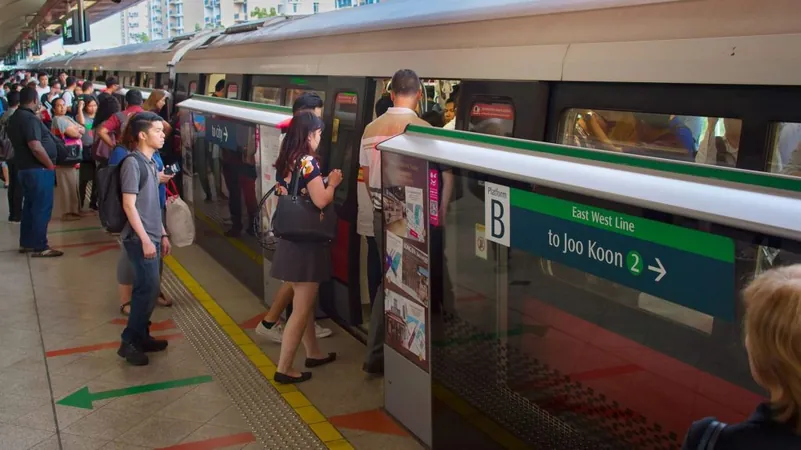
Why High Earners in Singapore Choose Public Transport Over Cars: The Surprising Truth
2024-10-14
Author: Li
Introduction
SINGAPORE: A fascinating discussion is buzzing on Reddit as users delve into the reasons why individuals earning between S$9,000 to S$25,000 a month are opting for public transport instead of driving, even when they own cars.
The Discussion Spark
One user sparked this conversation by questioning if high salaries render car ownership financially irrational. To many, the answer was a resounding yes. One contributor highlighted the notorious traffic congestion in the Central Business District (CBD), stating that "the prime CBD area is usually filled with traffic jams." They noted that parking fees can escalate quickly, creating an additional burden on their finances.
Personal Preferences
Another user, who works in the CBD, explained they prefer public transport unless absolutely exhausted by the end of the workday. They seldom rely on taxis, as prolonged travel times due to traffic delays make them less appealing. Interestingly, some professionals mentioned they sometimes take a private vehicle during rush hour for a brief rest but switch to the MRT for their evening commute, suggesting a compromise between convenience and sleep.
Real-Life Examples
Remarkably, one user shared that their manager, who earns nearly S$20,000 monthly, routinely opts for the train, citing a travel time difference of just about 10 minutes between public transport and driving, especially during peak hours. This efficiency, coupled with the hassle of parking, makes public transport an appealing choice.
Cultural Perspectives
Furthermore, a Redditor chimed in with anecdotes about acquaintances earning S$25,000 monthly who still find public transport "seriously convenient," underscoring the reliability of Singapore's extensive bus and train network. Another posted the thought-provoking quote by Gustavo Petro: “A developed country is not a place where the poor have cars. It’s where the rich use public transportation,” emphasizing a cultural shift in how wealth is perceived.
Accessibility and Social Habits
Accessibility plays a significant role in this trend. High earners often reside in areas that are well connected to public transport, making it a more practical option. In fact, for some, taking the MRT can actually be quicker than driving, offering a stark advantage in commutes.
Social habits also influence this choice; many individuals prefer taking public transport after engaging in social events where alcohol is consumed, choosing safety and convenience over the hassle of driving.
Financial Considerations
Moreover, insights from finance blog Seedly suggest that to comfortably afford the least expensive vehicle in Singapore, one would need a gross monthly income of at least S$8,729—a fact that adds to the financial considerations of car ownership for high earners.
Conclusion
This story raises intriguing questions about societal norms, transportation choices, and the evolving landscape of urban commuting in high-cost cities like Singapore. As more individuals turn to public transport, one has to wonder—could this signal a broader shift in attitudes towards car ownership among wealthier demographics?



 Brasil (PT)
Brasil (PT)
 Canada (EN)
Canada (EN)
 Chile (ES)
Chile (ES)
 España (ES)
España (ES)
 France (FR)
France (FR)
 Hong Kong (EN)
Hong Kong (EN)
 Italia (IT)
Italia (IT)
 日本 (JA)
日本 (JA)
 Magyarország (HU)
Magyarország (HU)
 Norge (NO)
Norge (NO)
 Polska (PL)
Polska (PL)
 Schweiz (DE)
Schweiz (DE)
 Singapore (EN)
Singapore (EN)
 Sverige (SV)
Sverige (SV)
 Suomi (FI)
Suomi (FI)
 Türkiye (TR)
Türkiye (TR)